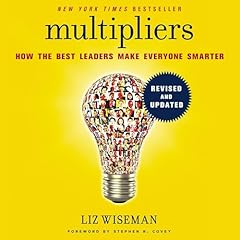
Defeating the Dictators
How Democracy Can Prevail in the Age of the Strongman
No se pudo agregar al carrito
Add to Cart failed.
Error al Agregar a Lista de Deseos.
Error al eliminar de la lista de deseos.
Error al añadir a tu biblioteca
Error al seguir el podcast
Error al dejar de seguir el podcast
 Exclusivo para miembros Prime: ¿Nuevo en Audible? Obtén 2 audiolibros gratis con tu prueba.
Exclusivo para miembros Prime: ¿Nuevo en Audible? Obtén 2 audiolibros gratis con tu prueba.Compra ahora por $21.93
-
Narrado por:
-
Joe Eyre
-
De:
-
Charles Dunst
How we strengthen democracy in the face of rising autocracy.
The world is currently experiencing the lowest levels of democracy we have seen in over thirty years. Autocracy is on the rise, and while the cost of autocracy seems evident, it nevertheless remains an attractive option to many.
While leaders like Viktor Orbán disrupt democratic foundations from within, autocrats like Xi Jinping and Vladimir Putin do so from abroad, eroding democratic institutions and values and imperilling democracies that appear increasingly fragile. There are even those who, disillusioned with the current institutions in place, increasingly think authoritarianism can deliver them a better life than democracy has or could.
They're wrong. Autocracy is not the solution - better democracy is. But we have to make the case for it. We have to combat institutional rot by learning from one another, and, at times, from our rivals. And we have to get our own houses in order. Only then can we effectively stand up for democratic values around the world and defeat the dictators.
©2023 Charles Dunst (P)2023 Hodder & Stoughton LimitedLos oyentes también disfrutaron:




















Reseñas de la Crítica
"A deeply-researched and engaging work that both details the challenges democracies face, and offers us clear and persuasive solutions. Dunst's writing is as sharp as his argument is necessary." (Senator Chris Coons)
The failure of democracies to meet the needs of their people has weakened the incentive for them to defend democracy—and made some people susceptible to the siren song of autocrats such as Orbán, Bolsonaro, and Trump. It's in this situation of economic hardship that persons who are wired for the "strict father model" (as defined by George Lakoff) clamor for strong men to alleviate their suffering—the problem with that is the autocrats eventually abandon their supporters' needs (once they've seized power) and attend only to their own whims, whether productive for their people or not. In cases such as Singapore, the autocratic government there has been attentive to keeping their people prosperous—even though they are under threat of severe penalties for frivolous offenses. It's also axiomatic that autocracies never produce innovation, as their very nature suffocates creative thinking—the best they can do is to steal it from innovative free countries.
Dunst advises that democracies need to up their game in the following ways: They must abandon their slavish devotion to discredited free market ideology, which has resulted in untenable wealth and power inequality—this situation is unsustainable, and will result in the fall of society one way or the other. The government has a proper and necessary role in providing a functional safety net and a fair taxation system, which does not currently exist especially in the US. Advocates of this essential approach must more effectively communicate its benefits, including to those parts of the population that are most susceptible to the lure of autocracy.
The solution is in regulating democratic capitalism so as to outright nurture entrepreneurship and artistic creativity, while also maintaining a no-nonsense safety net for when some of those projects inevitably fail. This is the sweet spot, to which all societies must go, now—the alternative is autocratic dystopia.
Regulate capitalism and nurture entrepreneurship
Se ha producido un error. Vuelve a intentarlo dentro de unos minutos.


